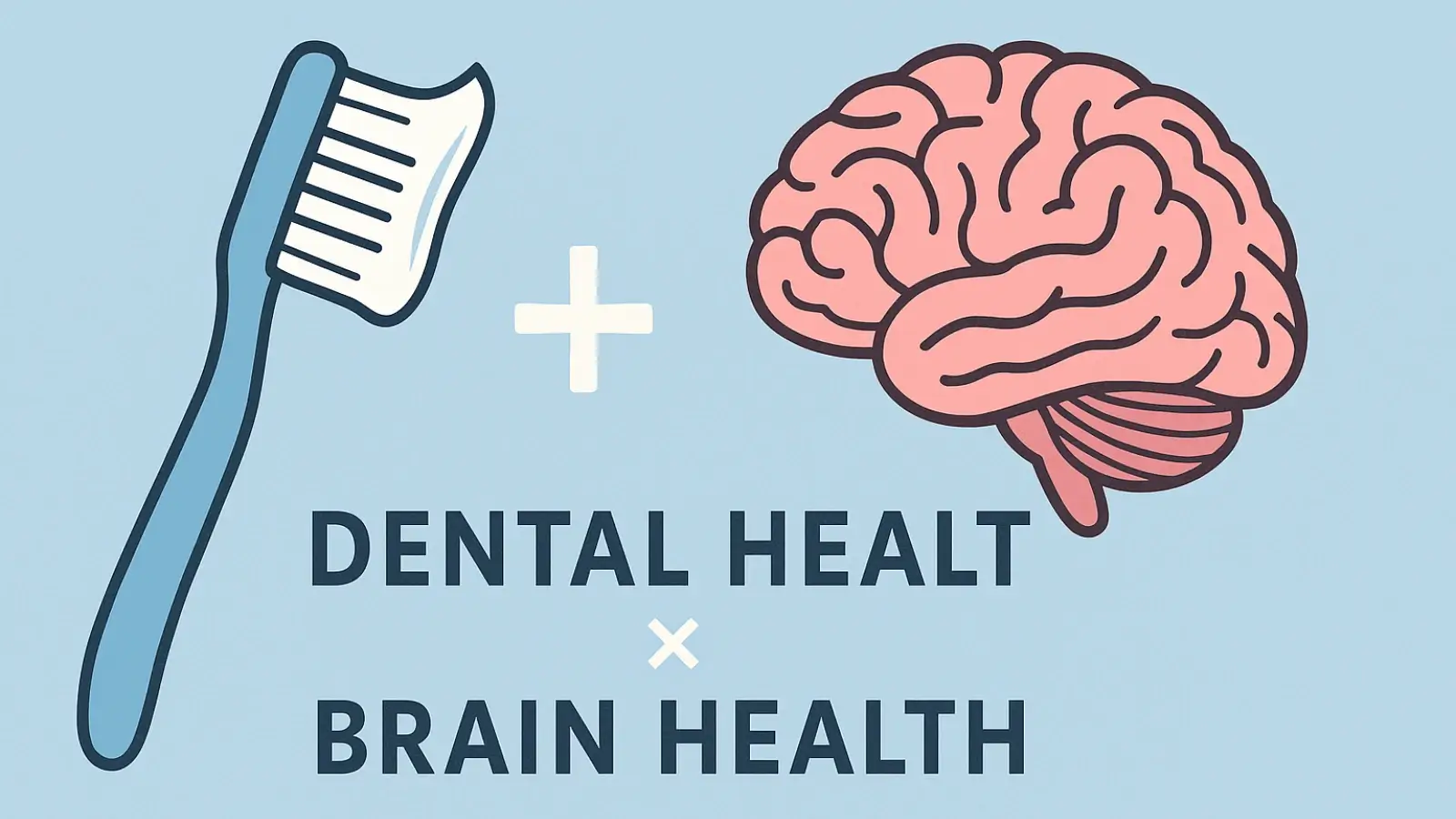


Most of us think brushing our teeth just keeps cavities away. In recent years, scientists have started exploring a deep and surprising link between dental care and brain function. It turns out that skipping flossing or avoiding the dentist may not only damage your teeth—it might also play a role in memory loss, cognitive decline, and even neurological conditions like Alzheimer’s disease.
Inflamed gums from poor dental care don’t just stay in your mouth. Bacteria from infected teeth and gum disease can enter the bloodstream and travel to other parts of the body, including the brain. Once there, they may trigger chronic inflammation, which scientists now believe contributes to cognitive problems and diseases like dementia.
A growing number of studies link periodontal disease (advanced gum disease) with poorer memory performance. Inflammation in the gums has been shown to increase brain fog, slow processing speed, and reduce verbal recall. It’s a quiet but powerful effect that starts in the mouth and echoes in your brain.
Your oral health often reflects your overall wellness.For instance, losing teeth isn't merely a cosmetic issue—it has been linked to an increased risk of cognitive deterioration. Studies indicate that individuals with a reduced number of teeth tend to exhibit diminished brain volume in regions linked to memory and decision-making.
Dental care is crucial, as saliva not only hydrates your mouth but also aids in managing the proliferation of harmful bacteria. Lack of adequate dental care can lead to the growth of oral bacteria, which may ultimately compromise the blood-brain barrier, a protective layer that defends your brain against toxins and harmful agents
Dentists are often the first to spot health problems that go beyond your mouth. Conditions like dry mouth, gum bleeding, or poor healing can signal neurological disorders, diabetes, or immune issues. That’s why dental visits should never be skipped—they’re about more than clean teeth.
According to this dentist in Henderson, in particular, changes in jaw movement, bite patterns, or facial muscle control can hint at neurological conditions like Parkinson’s disease or multiple sclerosis. Dentists trained to notice these subtle shifts may refer patients for further evaluation, making them a valuable part of early detection and overall health monitoring.
A new movement in medicine encourages collaboration between dentists and neurologists. When these professionals share information, they can detect early signs of cognitive issues and recommend treatments sooner, long before symptoms become severe.
Brush twice daily with fluoride toothpaste
Floss to reduce inflammation-causing plaque.
Eat a brain-friendly, low-sugar diet.t
Stay hydrated and avoid smoking.ng
Schedule biannual dental cleanings.
These simple actions not only maintain oral health, but they also act as insurance for your brain.
People with anxiety or depression may avoid dental care, creating a feedback loop where poor oral health worsens mental health and vice versa. Recognizing this connection can lead to better care strategies for both.
Dental care is more than a routine—it’s a daily act of brain protection. From the microbes in your mouth to the neurons in your brain, the connection is clear: a healthy smile reflects a healthy mind. Start now, and you may be doing more than avoiding cavities—you might just be safeguarding your future self.
1. Can poor dental care affect your memory?
Yes, research shows that inflammation from gum disease and oral bacteria may impact memory and thinking abilities, especially as we age.
2. How does brushing your teeth protect your brain?
Brushing removes bacteria that can cause gum disease and inflammation, factors linked to cognitive decline and even dementia.
3. Is there a connection between tooth loss and brain volume?
Studies have found that people with fewer teeth often show reduced brain volume in memory-related regions. Tooth loss is more than just cosmetic—it can indicate deeper health concerns.
4. At what age should brain-focused dental care begin?
It should begin in childhood. Early oral hygiene habits reduce long-term inflammation and infection, creating a foundation for both physical and mental health throughout life.